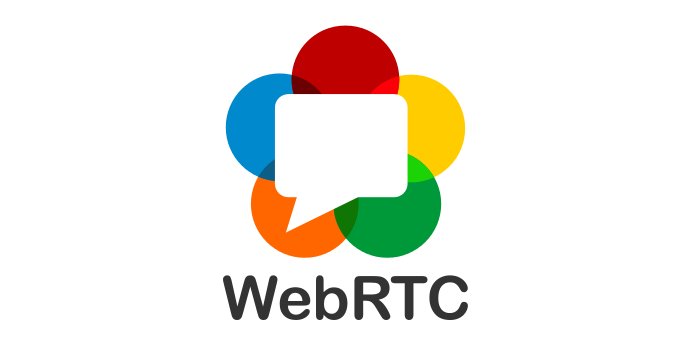🗓️ July@VirtualW3C: @w3cx online training, conference, etc. https://www.w3.org/participate/eventscal.html
1 July: we've just opened a session of @w3cx #HTML5 Coding Essentials and #BestPractices - updated content material for this intermediate level #MOOC course! @micbuffa @edXOnline
https://www.edx.org/course/html5-coding-essentials-and-best-practices
https://twitter.com/w3cdevs/status/12785696626582937606-10 July: @w3c and @W3CUKI endorse the 12th ACM Web Science Conference 2020 "Making the #Web human-centric", organized by @unisouthampton @WebSciConf https://websci20.webscience.org/
https://twitter.com/w3cdevs/status/12785696658166620177 July: start of a new session of @w3cx #MOOC - "#JavaScript Introduction". Learn and practice w/ @micbuffa @uca_education @edXOnline https://www.edx.org/course/javascript-introduction
https://twitter.com/w3cdevs/status/1278569667427217410#WebRTC is used to power video-conferences and collaboration systems on all platforms. The usage of real-time communications has skyrocketed in the fast few months (#COVID_19) with millions of new users, so it is critical that #WebRTC works across all browsers and networks.
Bernard Aboba, one of the co-chairs of the @w3c Web Real Time Communications (#WebRTC) #WorkingGroup, gives a report on the group's status and roadmap:
https://www.w3.org/2020/05/AC/talk/webrtc-update#align
https://youtu.be/3avWjtSqhPo
https://twitter.com/w3cdevs/status/1280109537886965760The group is also working on supporting docs, such as WebRTC-Stats (telemetry for #WebRTC apps), specs for audio output and media recording and the acquisition of media from #devices, screens, #DOM elements, etc. All the work happens in the open on #GitHub https://github.com/search?q=org%3Aw3c+topic%3Awebrtc
https://twitter.com/w3cdevs/status/1280109542760726533The group is developing requirements on "WebRTC-Next Version Use Cases" that require new #APIs and protocols, thus paving the way for WebRTC's future: https://www.w3.org/TR/webrtc-nv-use-cases/
https://twitter.com/w3cdevs/status/1280109541292728326The #WebRTC WG's highest priority is to finish the WebRTC 1.0 specification, now in #CandidateRecommendation status. It covers peer-to-peer communications and video-conferencing in #HTML:
https://www.w3.org/TR/webrtc/
https://twitter.com/w3cdevs/status/1280109539715620865Some of the work started in the context of #WebRTC is proposed to take life of its own in other groups, e.g. the proposed work on #WebTransport:
https://twitter.com/w3cdevs/status/1247493712361512960
https://twitter.com/w3cdevs/status/1280109544367161345Last May, @ab members' @fantasai and @frivoal explained the proposed changes for the 2020 edition of the @w3c Process document, the governing document of W3C standardization activity: https://www.w3.org/2020/05/AC/talk/Process2020#align
https://youtu.be/jpgwV8tKdV4 https://twitter.com/fantasai/status/1278902221355094016
This document guides the development of well thought-out, implementable, and relevant specs. Process 2020 represents some of the biggest changes in many years, while ensuring that @w3c values remain: wide review, implementation experience, consensus, and royalty-free licensing.
https://twitter.com/w3cdevs/status/1280825962385543168The main motivations behind the adoption of this new process were to avoid out-of-date and unmaintained specifications and/or to have active versions published outside @w3c, and thus eliminate confusion among implementers and reviewers, as well as #interoperability problems.
https://twitter.com/w3cdevs/status/1280825967338979329The W3C process has already gone through changes in 2018: https://twitter.com/w3cdevs/status/959076749291196416
https://twitter.com/w3cdevs/status/1280825969918558208The mission of the AGWG is to develop specifications to support making implementations of web technologies accessible for people with disabilities, and to develop and maintain implementation support
materials: https://www.w3.org/WAI/GL/ #a11y
Rachael Montgomery, co-chair of the @w3c #Accessibility Guidelines #WorkingGroup (AGWG) gives an update on the group's status and roadmap in this video:
https://www.w3.org/2020/05/AC/talk/AGWG-update#align
https://youtu.be/rgMf6Uyyad4
https://twitter.com/w3cdevs/status/1281225277096505352In parallel, one of the group's task forces, the Silver Task Force, is actively working towards WCAG 3.0, improving usability and measurability of the #a11y guidelines and providing harmonized guidance to help wider adoption:
https://www.w3.org/WAI/GL/task-forces/silver/
https://twitter.com/w3cdevs/status/1281225281513160704The group's main work has been to focus on WCAG 2.2, with the addition of around 8 new success criteria which expand support for individuals with disabilities, particularly around cognitive and learning
#disabilities: https://www.w3.org/blog/2020/02/wcag-22-in-development/
https://twitter.com/w3cdevs/status/1281225279072018433If you or your organization is new to the concept of #accessibility, @wai provides a variety of educational resources, as well documents in over 20 languages! https://www.w3.org/WAI/translations/
Here's where to get started:
https://www.w3.org/WAI/fundamentals/accessibility-intro/
https://twitter.com/w3cdevs/status/1281225283891273729But as anyone who has tried patching browsers will know, being open source doesn't mean it's straightforward to contribute changes to browser engines, which are based on huge and complex code bases
https://twitter.com/w3cdevs/status/1282662645104087041The Web platform is arguably already one of the most open platform for developers: its technologies are developed in the open, gathering input and feedback from anyone; and all the major browser rendering engines are developed as open source projects
.@w3c member @igalia is experimenting with a new way to give developers a voice in the roadmap of what ships in Web browsers https://twitter.com/igalia/status/1282651980171804673
https://twitter.com/w3cdevs/status/1282662643510255620.@igalia is proposing a crowd-funding program to bring their expertise in browser development across all the major engines to add well-identified features based on developer's pledges - we will be
watching the results of that experiment with high interest!
https://twitter.com/w3cdevs/status/1282662646534361088Congrats to @Gkellogg @pchampin and Dave Longley for the newly published three @w3c "JSON-LD 1.1" specifications #timetoadopt #WebStandard #JSONLD https://twitter.com/w3c/status/1283598575470096384
https://twitter.com/w3cdevs/status/128366693885040230423 July: join the @wai staff for an interactive update on guidelines, emerging technologies, and new resources #a11y #WCAG #ATAG
https://twitter.com/w3c_wai/status/1281318299364732928
https://twitter.com/w3cdevs/status/128370144304060006527-29 July: register to the @w3cpublishing community webinars to hear from #publishing industry experts @TzviyaSiegman Cristina Mussinelli @wendy_a_reid Avneesh Singh @teixmat Daihei Shiohama and @shiestyle
https://www.w3.org/2020/07/publ-webinar/
https://twitter.com/w3cdevs/status/128370144535161241630-31 July: MiniApp virtual event with pre-recorded talks and interactive sessions, organized by the @w3c MiniApps Ecosystem #CommunityGroup https://www.w3.org/2020/07/miniapp-virtual-meeting/
https://twitter.com/w3cdevs/status/1283706589665464322Two months ago, @TzviyaSiegman, one of the co-chairs of the Positive Work Environment #CommunityGroup, presented the proposed update to @w3c's #CodeOfConduct, the Code of Ethics and Professional Conduct (CEPC): https://www.w3.org/2020/05/AC/talk/CEPC#align
https://youtu.be/Z2fC-_f8LjE https://twitter.com/w3c/status/1284111997458616323
This #CodeOfConduct document attempts to help people understand when they may be offending another participant in the #w3c #community. The language is now more specific so to give precise information about what it means to respect one another: https://www.w3.org/Consortium/cepc/
https://twitter.com/w3cdevs/status/1284117061300563971CEPC's goals are to: define acceptable and expected standards of behavior, provide a benchmark, ensure transparency in community & group management, ensure an environment where people can participate without fear of harassment, and contribute to the identity of the organization.
https://twitter.com/w3cdevs/status/1284117065792618496The CEPC is developed in the Positive Work Environment (PWE) #CommunityGroup https://www.w3.org/community/pwe/ in their #github repository:
https://github.com/w3c/PWETF
https://twitter.com/w3cdevs/status/1284117070427426817The group is also looking at strengthening the Ombudsperson program by selecting several ombuds people to act as trusted confidants to work toward resolving complaints between any internal or external constituent: https://www.w3.org/Consortium/pwe/#ombuds
https://twitter.com/w3cdevs/status/1284117068875530242Next steps are to provide related training opportunities to all @w3c groups, starting with @jorydotcom's conflict deescalation work: https://gist.github.com/jorydotcom/a4773ba396655b2f7f094d5569f60f4d
More educational resources have been identified:
https://www.w3.org/Consortium/pwe/#Education
https://twitter.com/w3cdevs/status/1284117067256430593Happy Bday! https://twitter.com/MozDevNet/status/1286210718619099137
https://twitter.com/w3cdevs/status/128654746536638464031 July: @draggett keynotes at the @MINES_StEtienne's Summer School on #AI for #Industry40. He introduces the Sentient #Web and #CognitiveAI https://ai4industry.sciencesconf.org/ #RESTAPI #WoT
https://twitter.com/w3cdevs/status/1287735023081328640
